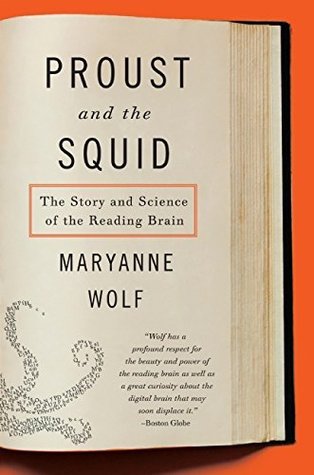More on this book
Community
Kindle Notes & Highlights
Read between
October 27 - November 16, 2021
WE WERE NEVER BORN TO READ. HUMAN BEINGS invented reading only a few thousand years ago. And with this invention, we rearranged the very organization of our brain,
Reading can be learned only because of the brain’s plastic design, and when reading takes place, that individual brain is forever changed, both physiologically and intellectually.
Proust saw reading as a kind of intellectual “sanctuary,” where human beings have access to thousands of different realities they might never encounter or understand otherwise.
While reading, we can leave our own consciousness, and pass over into the consciousness of another person, another age, another culture.
Children with a rich repertoire of words and their associations will experience any text or any conversation in ways that are substantively different from children who do not have the same stored words and concepts.
reading has no direct genetic program passing it on to future generations.
“Children are wired for sound, but print is an optional accessory that must be painstakingly bolted on.”
Learning to read begins the first time an infant is held and read a story. How often this happens, or fails to happen, in the first five years of childhood turns out to be one of the best predictors of later reading.
Children who begin kindergarten having heard and used thousands of words, whose meanings are already understood, classified, and stored away in their young brains, have the advantage on the playing field of education.
“It would be a shame if brilliant technology were to end up threatening the kind of intellect that produced it.”
Plato’s careful recording of Socrates’ surprising arguments against literacy reveals tremendously important reasons why we would do well to heed them today.
Socrates and Professor Kingsfield are bedfellows with thousands of teachers and parents today who watch their children spend endless hours before computer screens, absorbing but not necessarily understanding all manner of information.
What happens to these children when the electricity goes out, the computer breaks down, or the rocket’s systems malfunction?
Ultimately, Socrates did not fear reading. He feared superfluity of knowledge and its corollary—superficial understanding.
Will modern curiosity be sated by the flood of pat, often superficial information on a screen, or will it lead to a desire for more in-depth knowledge?
But it is not only vocabulary growth that is special about the language of story and books. Equally important is the syntax or grammatical structure found here,
the principal regions of the brain that underlie our ability to integrate visual, verbal, and auditory information rapidly—like the angular gyrus—are not fully myelinated in most humans until five years of age
the many efforts to teach a child to read before four or five years of age are biologically precipitate and potentially counterproductive for many children.
The sheer unavailability of books will have a crushing effect on the word knowledge and world knowledge that should be learned in these early years.
Thanks to an ear infection, the child receives inconsistent acoustic information,
After children leave the third grade, teachers expect them to have sufficiently automatic reading skills that enable them to learn more and more “on their own,”
most fourth-grade teachers never take a course in teaching reading to children who have not acquired fluency.
invisible issue in American education is the fate of young elementary students who read accurately (the basic goal in most reading research) but not fluently in grades 3 and 4.
the fact that in terms of human evolution the brain was never meant to read; as we’ve seen, there are neither genes nor biological structures specific only to reading.


